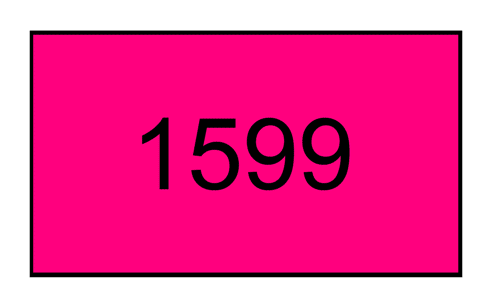22
1
The Challenge
Write a program or function that takes two input integers, i and j, and outputs their greatest common divisor; calculated by using the Euclidean algorithm (see below).
Input
Input may be taken as a space-delimited string representation of i and j or as two separate integers. You can assume that integers will be less than or equal to 10,000. You can also assume that the input integers will not be prime to one another.
Euclidean Breakdown
The larger number between i and j is divided by the smaller as many times as possible. Then, the remainder is added. This process is repeated with the remainder and the previous number, until the remainder becomes 0.
For example, if the input was 1599 650:
1599 = (650 * 2) + 299
650 = (299 * 2) + 52
299 = (52 * 5) + 39
52 = (39 * 1) + 13
39 = (13 * 3) + 0
The final number, 13, is the greatest common divisor of the two input integers. It can be visualized like this:

Output
Your output must be the breakdown in the form above, followed by a newline and the GCD. It can be output through any medium.
Examples
Inputs
18 27
50 20
447 501
9894 2628
Outputs
27 = (18 * 1) + 9
18 = (9 * 2) + 0
9
50 = (20 * 2) + 10
20 = (10 * 2) + 0
10
501 = (447 * 1) + 54
447 = (54 * 8) + 15
54 = (15 * 3) + 9
15 = (9 * 1) + 6
9 = (6 * 1) + 3
6 = (3 * 2) + 0
3
9894 = (2628 * 3) + 2010
2628 = (2010 * 1) + 618
2010 = (618 * 3) + 156
618 = (156 * 3) + 150
156 = (150 * 1) + 6
150 = (6 * 25) + 0
6
Note: Outputs do not have to be spaced as they are above. The spacing is only for clarity. Parentheses are required.
Bonus
If your output is spaced as above, you may add a -10% bonus to your score.
>
Ok I see some examples have the largest number second – Level River St – 2015-09-24T09:16:02.243
Your original title was OK, I've commented on what happened at http://meta.codegolf.stackexchange.com/q/7043/15599 . The phrase "greatest common denominator" was wrong however. "Denominator" relates to fractions. Googling "greatest common denominator" only gives results for "greatest common divisor / factor."
– Level River St – 2015-09-24T14:39:57.403I thought the title was OK, but I changed it to "The" as to not displease anyone. Thanks for editing in "divisor", BTW. @steveverrill – Zach Gates – 2015-09-24T15:19:59.793